Abstracts
GRAPPA develops future thought leaders by hosting an annual Trainee Symposium. Abstracts from around the world are submitted and the best are chosen to present.
The trainee symposium promotes the dissemination and discussion of research related to dermatology and rheumatology clinical, translational, and basic science proposals.
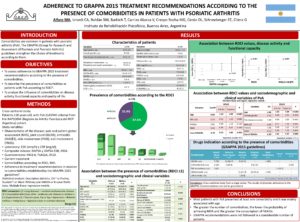
Adherence to GRAPPA 2015 Treatment Recommendations According to the Presence of Comorbidities in Patients with Psoriatic Arthritis
Comorbidities are common in patients with psoriatic arthritis (PsA). The GRAPPA (Group for Research and Assessment of Psoriasis and Psoriatic Arthritis) guidelines strengthen the choice of treatments according to them...
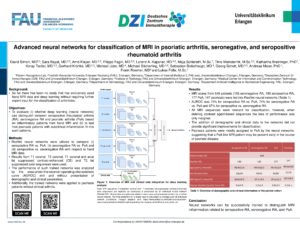
Advanced neural networks for classification of MRI in psoriatic arthritis, seronegative, and seropositive rheumatoid arthritis
So far there has been no study that has exclusively used hand MRI data and deep learning without requiring further expert input for the classification of arthritides...
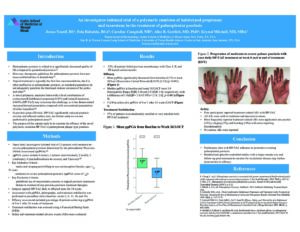
An investigator-initiated trial of a polymeric emulsion of halobetasol propionate and tazarotene in the treatment of palmoplantar psoriasis
Background: Palmoplantar psoriasis is a chronic, difficult-to-treat localized variant of psoriasis that affects the palms and soles, significantly affecting patient’s...
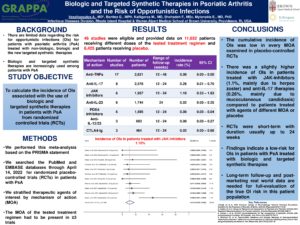
Biologic and Targeted Synthetic Therapies in Psoriatic Arthritis and the Risk of Opportunistic Infections
Biologic and targeted synthetic therapies have changed the management of psoriatic arthritis over the past decades. However, these treatments might result in immunosuppression and could increase risk for opportunistic infections. Here, we present a meta-analysis on the incidence of opportunistic infections among individuals with psoriatic arthritis treated...
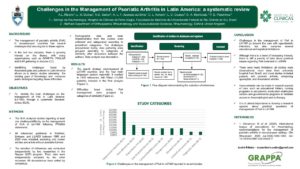
Challenges in the Management of Psoriatic Arthritis in Latin America: a systematic review
Background. In 2020, the International League of Associations for Rheumatology (ILAR) recommendations for management of psoriatic arthritis (PsA) were published (1). It aimed to adapt GRAPPA and EULAR recommendations to resource-poor settings. At that time, the paucity or absence...
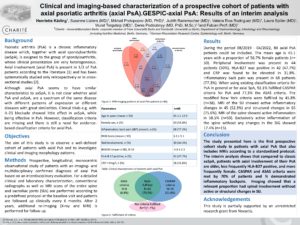
Clinical and imaging-based characterization of a prospective cohort of patients with axial psoriatic arthritis (axial PsA).GESPIC-axial PsA: Results of an interim analysis
Under the umbrella term spondyloarthritis whose clinical presentations are very heterogeneous, psoriatic..
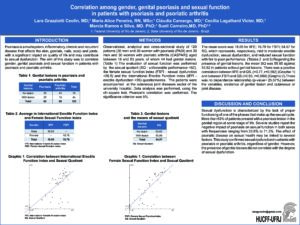
Correlation among gender, genital psoriasis and sexual function in patients with psoriasis and psoriatic arthritis
INTRODUCTION
Psoriasis is a multisystem, inflammatory, chronic and recurrent disease that affects the skin, genitals, nails, scalp and joints...
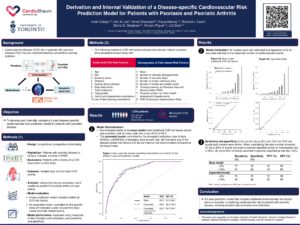
Derivation and Internal Validation of a Disease-specific Cardiovascular Risk Prediction Model for Patients with Psoriatic Disease
Background: Patients with psoriatic arthritis and psoriasis, collectively termed psoriatic disease (PsD), have an increased risk of cardiovascular disease. We derived and internally validated a 5-year disease...

Development of a Biologic Treatment Decision Algorithm According to Peripheral T-Helper Cell Profile Using Cytokine Secretion Assay: A proof of concept
Background and Objective
Recent studies have suggested that knowledge of the peripheral T cell profile may help in treatment...
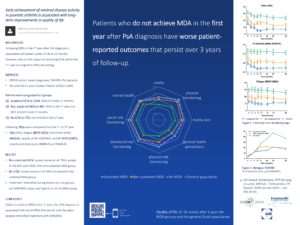
Early achievement of minimal disease activity in psoriatic arthritis is associated with long-term improvements in quality of life
Background. In a previous study we have shown that achieving minimal disease activity (MDA) in the first year after diagnosis is associated with better quality...
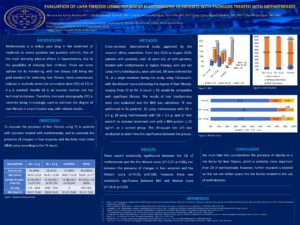
Evaluation of liver fibrosis using transient elastography in patients with psoriasis treated with methotrexate
BACKGROUND: Methotrexate is a widely used drug in the treatment of moderate to severe psoriasis and psoriatic arthritis...
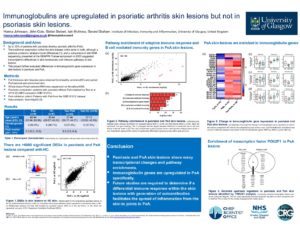
Immunoglobulins are upregulated in psoriatic arthritis skin lesions but not in psoriasis skin lesions.
Background
Up to 30% of patients with psoriasis develop psoriatic arthritis (PsA). A previous proteomic analysis chall...
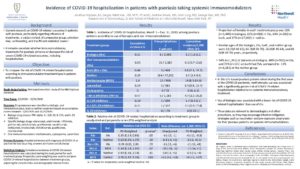
Incidence of COVID-19 hospitalization in patients with psoriasis taking systemic immunomodulators
Background. Current research on COVID-19-related outcomes in patients with psoriasis, particularly regarding influence of treatments, is subject to lack of comparator group, selection bias, confounding, and insufficient statistical power.[1]...
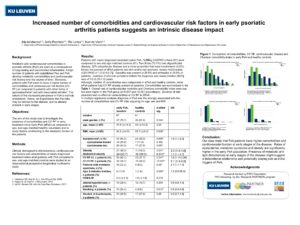
Increased number of comorbidities and cardiovascular risk factors in early psoriatic arthritis patients suggests an intrinsic disease impact
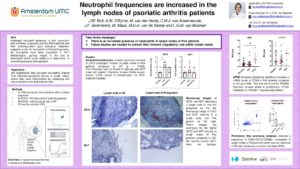
Neutrophil frequencies are increased in the lymph nodes of psoriatic arthritis patients
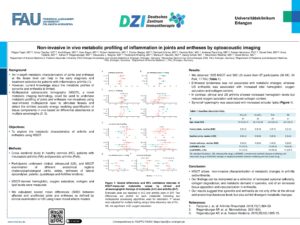
Non-invasive in vivo metabolic profiling of inflammation in joints and entheses by optoacoustic imaging
Background:An in-depth metabolic characterization of joints and entheses at the tissue level can help in the early diagnosis and treatment selection for patients...
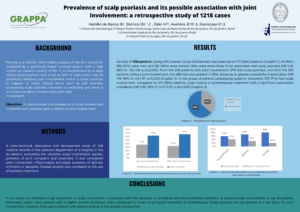
Prevalence of scalp psoriasis and its possible association with joint involvement: a retrospective study of 1218 cases
Background: Psoriasis is a chronic inflammatory disease of the skin and joints, mediated by a genetically-based immune system, ...
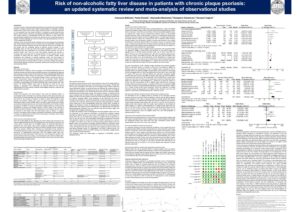
Risk of non-alcoholic fatty liver disease in patients with chronic plaque psoriasis: an updated systematic review and meta-analysis of observational studies
Chronic plaque psoriasis is associated with the presence of non-alcoholic fatty liver disease (NAFLD), but the magnitude of this associatio...
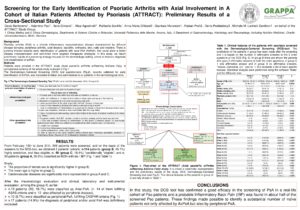
Screening for the Early Identification of Psoriatic Arthritis with Axial Involvement in A Cohort of Italian Patients Affected by Psoriasis (ATTRACT): Preliminary Results of a Cross-Sectional Study
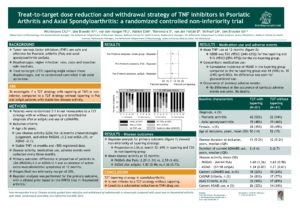
Treat-to-target dose reduction and withdrawal strategy of TNF inhibitors in Psoriatic Arthritis and Axial Spondyloarthritis: a randomized controlled non-inferiority trial
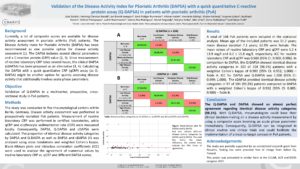
Validation of the Disease Activity Index for PSoriatic Arthritis (DAPSA) with a quick quantitative C-reactive protein assay (Q-DAPSA) in patients with psoriatic arthritis (PsA)
The Disease Activity Index for PSoriatic Arthritis (DAPSA) is a validated, unidimensional ...
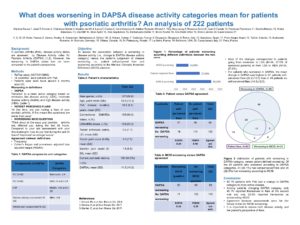
What does worsening in DAPSA disease activity categories mean for patients with psoriatic arthritis? An analysis of 222 patients
n psoriatic arthritis (PsA), disease activity states are assessed by Disease Activity index
for Psoriatic Arthritis (DAPSA). DAPSA is validated against structural progression. However, the worsening in DAPSA states has not been compared to the patient’s perspective...

